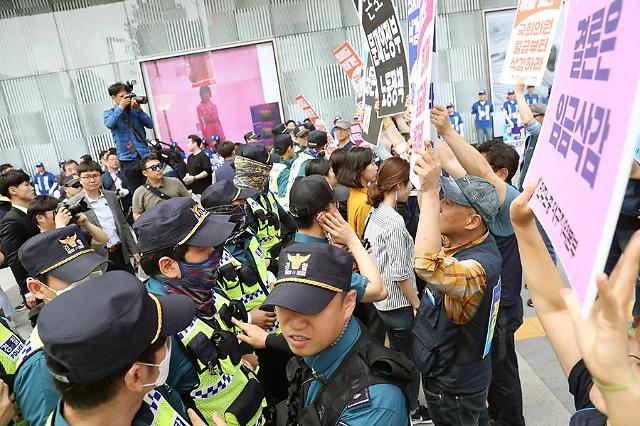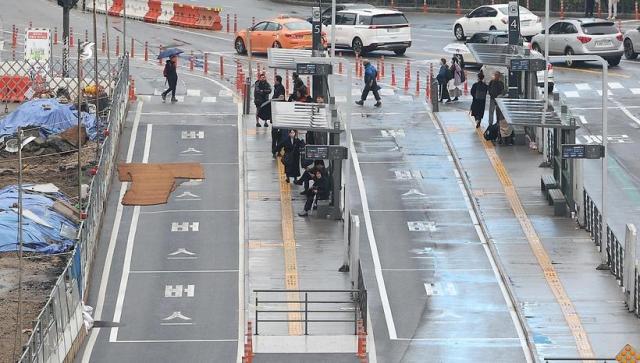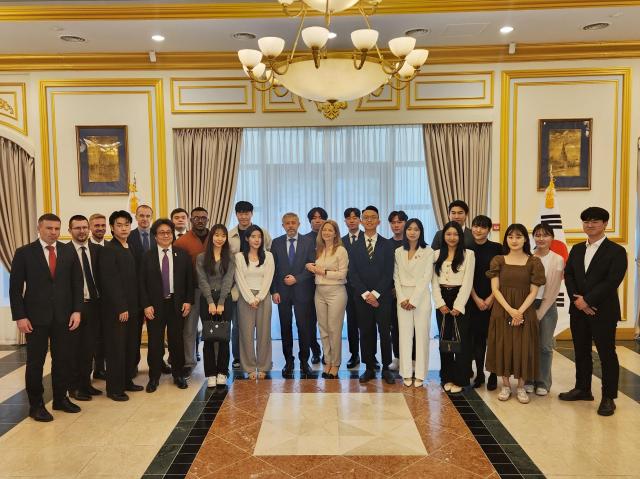
[Yonhap Photo]
SEOUL -- A shortened work week aimed at improving the quality of life has been a key election pledge by President Moon Jae-in who took office in May last year with support from labor unions, but its implementation has caused mixed reactions as South Korea faces a slow economic recovery.
In a policy meeting Wednesday with the ruling Democratic Party (DP), top government officials agreed to introduce a six-month grace period for the implementation of a new act on shorter working hours that had been set to take effect on July 1.
South Korea has been known as one of Asia’s most overworked country. In attempts to improve living standards, create more jobs and boost productivity, Moon has pushed for a new law to cut the maximum weekly work hours from 68 to to 52. The new law was also aimed at increasing the country’s low birth rate which hit record lows last year.
"I saw that it was necessary to minimize the impact of the shortening of the working hours and to make the system more centered on administrative guidance and supervision so that it can be implemented easier in the field," DP spokesman Park Beom-kye told reporters.
Initially, many workers expressed unhappiness about lower wages to be caused by reduced working hours while companies argued they are not fully prepared for the new system. A report by the Korea Economic Research Institute estimated that firms will need to hire an additional 266,600 staff to cope with the reduced work week.
"I understand the preparation time was not sufficient due to the amendment law being carried out within a short period of time," Prime Minister Lee Nak-yeon said, calling for a flexible approach to cushion the impact of the new law which targets companies with 300 or more employees.
Moon has taken a series of pro-union steps, but union leaders want more, asking the government to speed up labor reforms, put temporary or contract workers on the permanent payroll, and raise the ceiling of minimum wages. The minimum wage was raised by 16.4 percent to 7,530 won ($6.8) per hour, but it backfired because small firms sacked many part-time workers to reduce costs.




